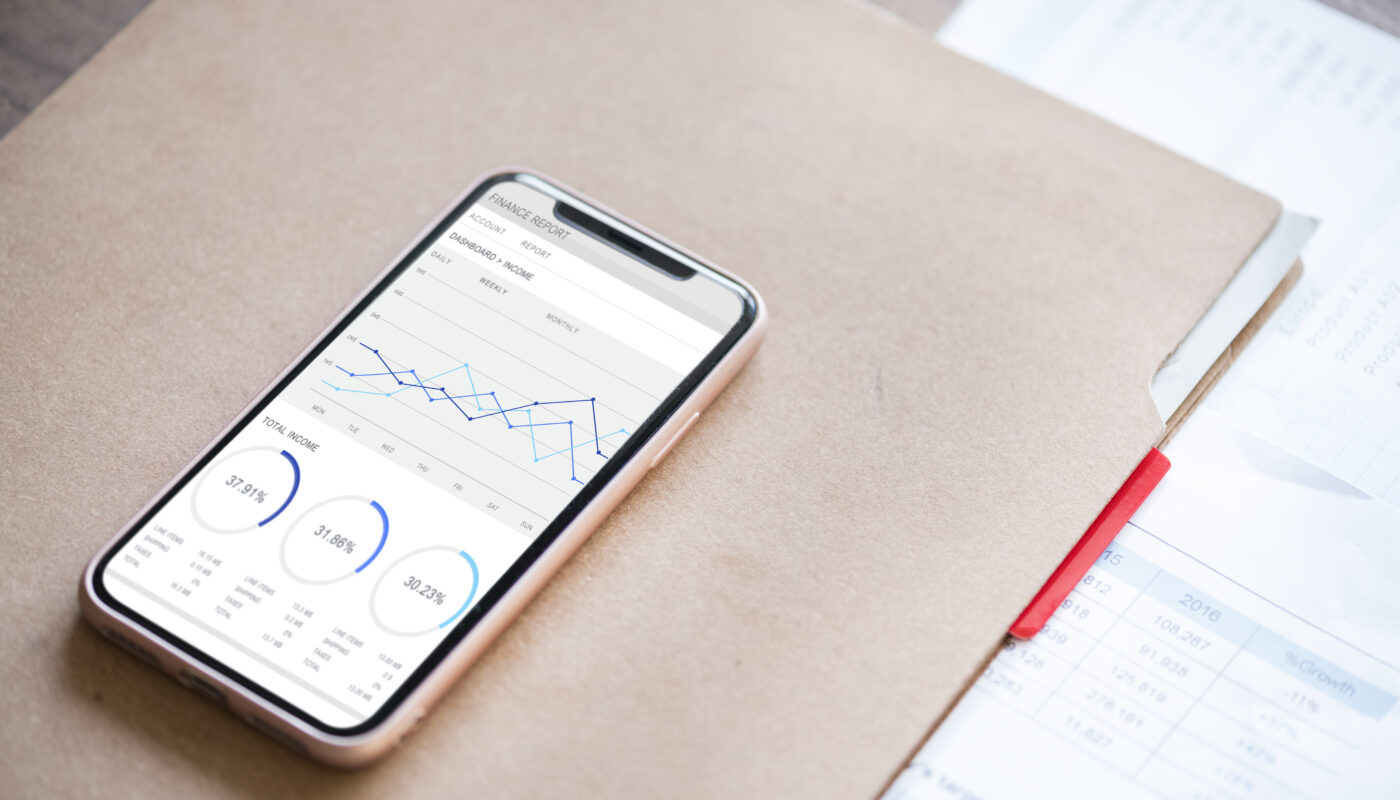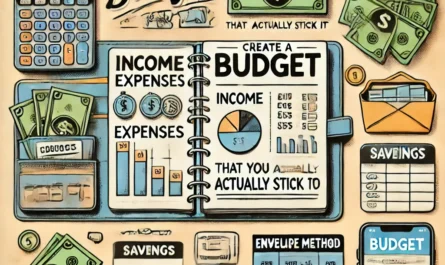Keeping your budget in check is essential for financial health, but tracking expenses and managing finances can be overwhelming. Personal finance apps simplify this process, helping you make smarter financial choices with ease. With features like automatic expense tracking, budgeting tools, goal setting, and more, these apps provide a holistic view of your financial status. Here’s a list of the top 7 personal finance apps designed to keep your budget on track in 2024.
1. Mint: Best Overall for Comprehensive Budgeting
Overview:
Mint by Intuit is a popular and powerful budgeting app that consolidates all of your financial accounts in one place, offering a complete view of your financial life. Known for its user-friendly interface and robust set of features, Mint makes it easy to track spending, set goals, and monitor credit scores.
Key Features:
- Budgeting and Spending Insights: Mint automatically categorizes transactions, giving you a clear view of spending habits and allowing you to set budget limits.
- Goal Tracking: Set and track financial goals, whether it’s saving for a vacation or building an emergency fund.
- Bill Reminders: Receive reminders for upcoming bills to avoid late fees.
- Free Credit Score Monitoring: Mint provides free access to your credit score, helping you monitor and improve it over time.
Best For:
Anyone looking for a comprehensive, free budgeting solution that’s easy to use.
Pros:
- Free to use with in-app ads.
- Integration with multiple financial institutions.
- Customized budgeting tips based on spending behavior.
Cons:
- Ads may be intrusive.
- Limited investment tracking features.
2. You Need a Budget (YNAB): Best for Hands-On Budgeters
Overview:
YNAB takes a unique, hands-on approach to budgeting. The app encourages users to “give every dollar a job,” allocating every dollar toward a specific purpose. This proactive budgeting method helps prevent overspending and prioritize saving.
Key Features:
- Four-Rule Budgeting System: YNAB’s methodology focuses on assigning every dollar to a purpose, saving for future expenses, adjusting when things don’t go as planned, and embracing flexibility.
- Goal Setting: The app supports financial goals by setting specific targets, such as debt payoff or savings milestones.
- Debt Payoff Tools: Track your progress toward paying off credit card debt or loans.
- Account Syncing: Link all bank accounts, credit cards, and loans to track balances in real time.
Best For:
People who want a hands-on budgeting tool and are willing to actively engage with their finances.
Pros:
- Effective debt payoff strategy.
- Motivates users to save and spend with intention.
- 34-day free trial to explore the features.
Cons:
- $14.99/month or $98.99/year after the free trial.
- Learning curve for new users.
3. PocketGuard: Best for Limiting Spending
Overview:
PocketGuard focuses on helping users avoid overspending by showing exactly how much money is “safe to spend” after covering essentials like bills, savings, and goals. It’s a straightforward app ideal for those who want to manage their day-to-day spending without complex budget categories.
Key Features:
- In My Pocket (IMP) Feature: After calculating income, bills, goals, and necessities, PocketGuard shows how much is left for discretionary spending.
- Bill Tracking and Optimization: Helps users find savings on recurring bills by suggesting better deals.
- Savings Goals: Set aside money for specific financial goals without affecting your day-to-day expenses.
Best For:
People who need help managing day-to-day spending while ensuring bills and essentials are covered.
Pros:
- Clear visual representation of “safe-to-spend” money.
- No-nonsense budgeting for busy users.
- Bill optimization for savings.
Cons:
- Limited customization for budget categories.
- Free version is basic; PocketGuard Plus ($7.99/month or $34.99/year) unlocks more features.
4. Personal Capital: Best for Investment Tracking
Overview:
Personal Capital offers a powerful suite of tools focused on both budgeting and investment management. While it has excellent budgeting tools, Personal Capital stands out for its investment tracking, allowing users to monitor and optimize their portfolios.
Key Features:
- Investment Management Tools: Personal Capital offers tools to track investments, monitor performance, and check asset allocation.
- Net Worth Tracking: Combines all assets and liabilities to give a real-time view of net worth.
- Retirement Planner: Provides a detailed retirement planner that calculates the progress toward your retirement goal.
- Budget and Cash Flow Management: Track and categorize transactions for better budgeting.
Best For:
Individuals who want an all-in-one budgeting and investment app.
Pros:
- Comprehensive investment and retirement planning.
- Free financial analysis tools.
- Ability to analyze fees and compare retirement savings.
Cons:
- More geared toward investment tracking than budgeting.
- Premium wealth management services come with a fee.
5. Goodbudget: Best for Envelope Budgeting Fans
Overview:
Goodbudget is a modern, digital twist on the classic envelope budgeting method. It divides your budget into “envelopes” representing different spending categories, allowing users to plan how they spend every dollar.
Key Features:
- Envelope System: Set up digital envelopes for various spending categories (groceries, rent, entertainment, etc.).
- Expense Tracking: Manually enter transactions to help you stay aware of spending.
- Debt Payoff Tracking: Set goals and track progress toward paying off debt.
- Multi-Device Syncing: Share your budget with family members or partners across devices.
Best For:
Those who prefer envelope budgeting and a manual approach to expense tracking.
Pros:
- Great for managing specific spending categories.
- Ideal for couples or families with shared finances.
- Free version with basic functionality.
Cons:
- Requires manual entry for most expenses.
- Lacks investment tracking features.
6. Honeydue: Best for Couples
Overview:
Honeydue is a budgeting app designed for couples who want to manage their finances together. With features that promote transparency, communication, and collaboration, Honeydue helps couples track shared expenses, set goals, and budget as a team.
Key Features:
- Joint Expense Tracking: Track and categorize expenses as a couple while also managing individual finances.
- Bill Reminders: Get reminders for upcoming bills to avoid late fees.
- Customizable Categories: Create custom categories for expenses unique to your household.
- Private Chat Function: Honeydue includes a chat feature for in-app communication.
Best For:
Couples who want to manage shared finances and improve financial transparency.
Pros:
- User-friendly interface geared toward couples.
- Helps prevent financial misunderstandings.
- Free to use with optional donations.
Cons:
- Limited features for single users.
- No investment tracking.
7. Empower (Formerly Personal Capital Cash): Best for Savings Optimization
Overview:
Empower is an ideal app for people looking to optimize their savings and grow their net worth. While Empower includes budgeting tools, its real strength lies in its high-yield cash account, low-fee wealth management services, and extensive planning tools for retirement.
Key Features:
- High-Yield Savings Account: Competitive interest rates for cash accounts, ideal for saving.
- Wealth Management Services: Offers investment advisory services for users who want professional financial guidance.
- Retirement Planner: Tailored tools for retirement planning and personalized advice.
- Automatic Savings: Empower can help you save by setting aside money based on your cash flow.
Best For:
Individuals focused on savings growth, long-term financial planning, and wealth management.
Pros:
- Helps users build savings with higher interest rates.
- Comprehensive financial planning and advisory services.
- User-friendly retirement and wealth management tools.
Cons:
- Limited to U.S. residents.
- Wealth management services have associated fees.
Choosing the Right App for Your Budgeting Needs
When selecting a personal finance app, consider your unique financial goals, budgeting style, and preferences:
- For Budgeting Beginners: Start with Mint or PocketGuard for an easy-to-use, intuitive experience.
- For Dedicated Budgeters: You Need a Budget (YNAB) offers an effective system for hands-on users committed to tracking every dollar.
- For Investment Focus: Personal Capital is a top choice if you want robust investment and retirement tracking.
- For Couples: Honeydue helps couples stay aligned financially with transparency and communication.
- For Envelope Budgeters: Goodbudget brings digital convenience to a classic budgeting approach.
- For Savings Optimization: Empower’s high-yield account and wealth management tools make it ideal for those focused on long-term growth.
These apps cater to different needs and lifestyles, whether you’re tracking every expense, growing your investments, or sharing expenses with a partner. Trying a few options (most offer free versions or trials) can help you find the one that best suits your financial needs.
Final Thoughts
A personal finance app can make budgeting easier, giving you greater control and insight into your spending and saving habits. Whether you’re just beginning to take control of your finances or looking for advanced features, the apps on this list offer a variety of tools to suit different goals.



